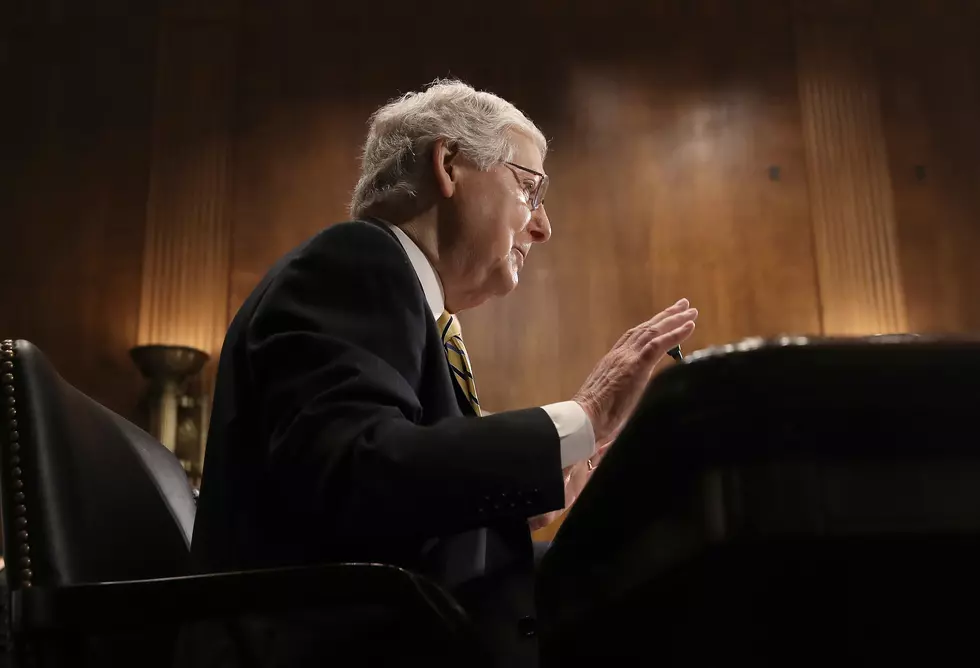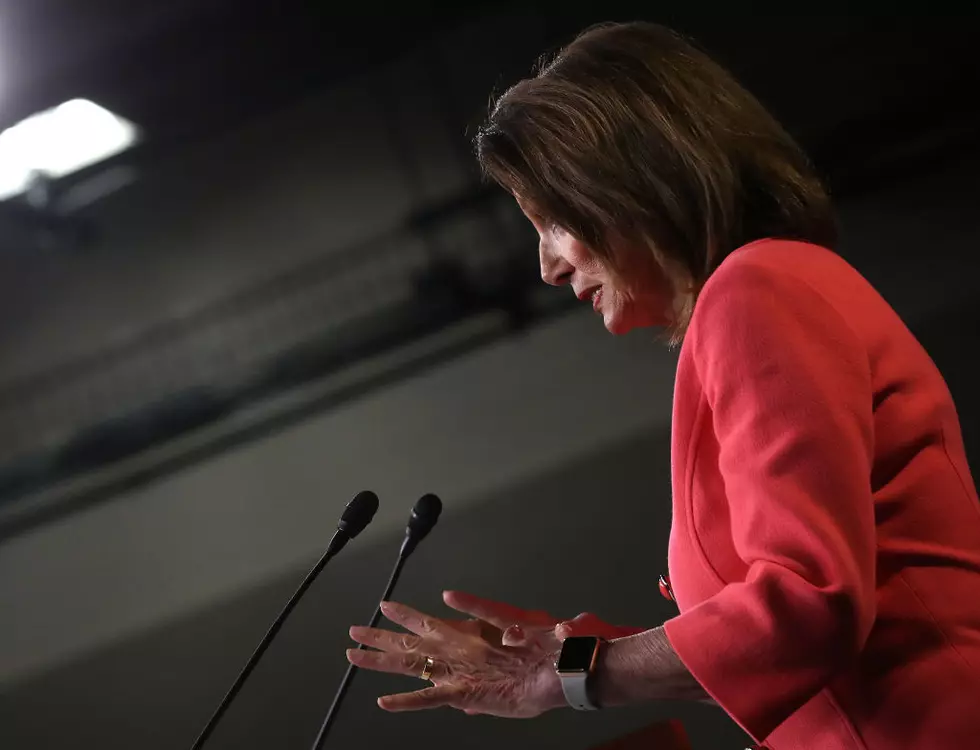
Cuts Are Coming. Can Pelosi And McConnell Make A Deal?
WASHINGTON (AP) — House Speaker Nancy Pelosi and top Senate Republican Mitch McConnell, Washington's odd couple, have a limited set of mutual legislative interests in a capital beset by dysfunction and awash in presidential politics.
But automatic spending cuts, the legacy of a budget breakdown eight years ago, are bringing the power duo together to see if a deal can be made.
At stake are tens of billions of dollars for military and domestic programs, money that brings together a broad spectrum of lawmakers, including pragmatists hoping to see the Capitol function.
There is plenty of time to reach agreement, but failure could usher in spending cuts of $125 billion next year, a 10 percent drop from current levels. Looming over it all is the record 35-day partial government shutdown earlier this year, still a fresh memory and a disruption no one wants to repeat.
McConnell, R-Ky., and Pelosi, D-Calif., have been players in numerous bipartisan budget deals, and their mutual support is an essential ingredient if any new one is to succeed. Early signs seem iffy at best.
President Donald Trump is not a fan of the effort. Trump's budget proposes an increase in defense spending to $750 billion but would keep the cuts to domestic agencies and foreign aid in place, though that was an impossible formula to sustain even before Democrats took back the House.
Forces inside Trump's White House appear opposed as well, at least to the kind of everybody-gets-something bipartisan deals that can make it through the system. Three previous agreements have denied Trump the money he demanded to build a U.S.-Mexico border wall, and he has signed them reluctantly.
The White House seems more interested in speedy action on legislation to increase the government's borrowing limit, which must be passed to avoid defaulting on its obligations. Trump's team worries that marrying the two issues might prove too toxic for GOP allies on Capitol Hill.
On the spending picture, acting White House chief of staff Mick Mulvaney, architect of Trump's annual budget from his former post as budget director, is seen as an obstacle, along with current budget chief Russ Vought, a hard-line conservative.
The White House has made it plain in private that it could live with a fallback deal of a freeze at current levels, even though that would deny the Pentagon its requested increase.
Trump tweeted this month: "House Democrats want to negotiate a $2 TRILLION spending increase but can't even pass their own plan. We can't afford it anyway, and it's not happening!" Trump's $2 trillion figure reflects what a deal could cost over 10 years.
Pelosi does have some problems on her left flank, which this month blocked a leadership-backed measure to set new budget limits reflecting Democratic domestic priorities. Liberals such as Reps. Pramila Jayapal of Washington state and Ro Khanna of California stifled the plan, saying it shortchanged domestic programs.
"It's obvious they can't agree among themselves how much they want to spend," McConnell recently told reporters. He said the only possibility he sees is a bipartisan agreement that "the most liberal members of her party don't vote for and the most conservative members of my party don't vote for."
McConnell insists he and Pelosi can deliver as they have in the past, and both have long histories on the powerful House and Senate Appropriations committees, for years as the top negotiators over the annual foreign aid bill. But Washington's partisanship and the battles over Democratic investigations of Trump aren't helping now, and Trump's unpredictability could unravel things at any time.
What's more, there isn't pressure to reach a deal quickly. At immediate stake is the setting of upper boundaries, or "caps," on about $1.3 trillion in annual appropriations passed by Congress for agency operations. Actually divvying up the money comes during lengthy consideration of 12 individual spending bills.
Both the House and Senate routinely bust the Sept. 30 deadline for the spending legislation, and both the House and Senate Appropriations committees plan to begin work on their 12 bills regardless. Washington's rules dictate that the spending cuts wouldn't actually strike until next year.
Past deals, including the 2011 budget pact between President Barack Obama and GOP leaders, have typically hitched a ride on must-do legislation to increase the government's borrowing cap, though the need to raise that limit doesn't come into play until late this summer or early fall.
Also, McConnell may be more eager for a deal than Pelosi. Senate rules and traditions mandate that the process in that chamber be bipartisan if it is to succeed.
But in the House, majority Democrats don't need GOP help at the outset to pass the bills.
The leader of the House Appropriations Committee, Rep. Nita Lowey, D-N.Y., is kicking off action this week, starting with health and education programs.
For now, the two sides plan to plug along in hopes of forestalling the prospect of across-the-board cuts and minimizing the chaos.
"Pelosi and McConnell do not want to go through another government shutdown," said Bill Hoagland, a longtime Senate budget aide and an analyst with the Bipartisan Policy Center.
More From WIBX 950









